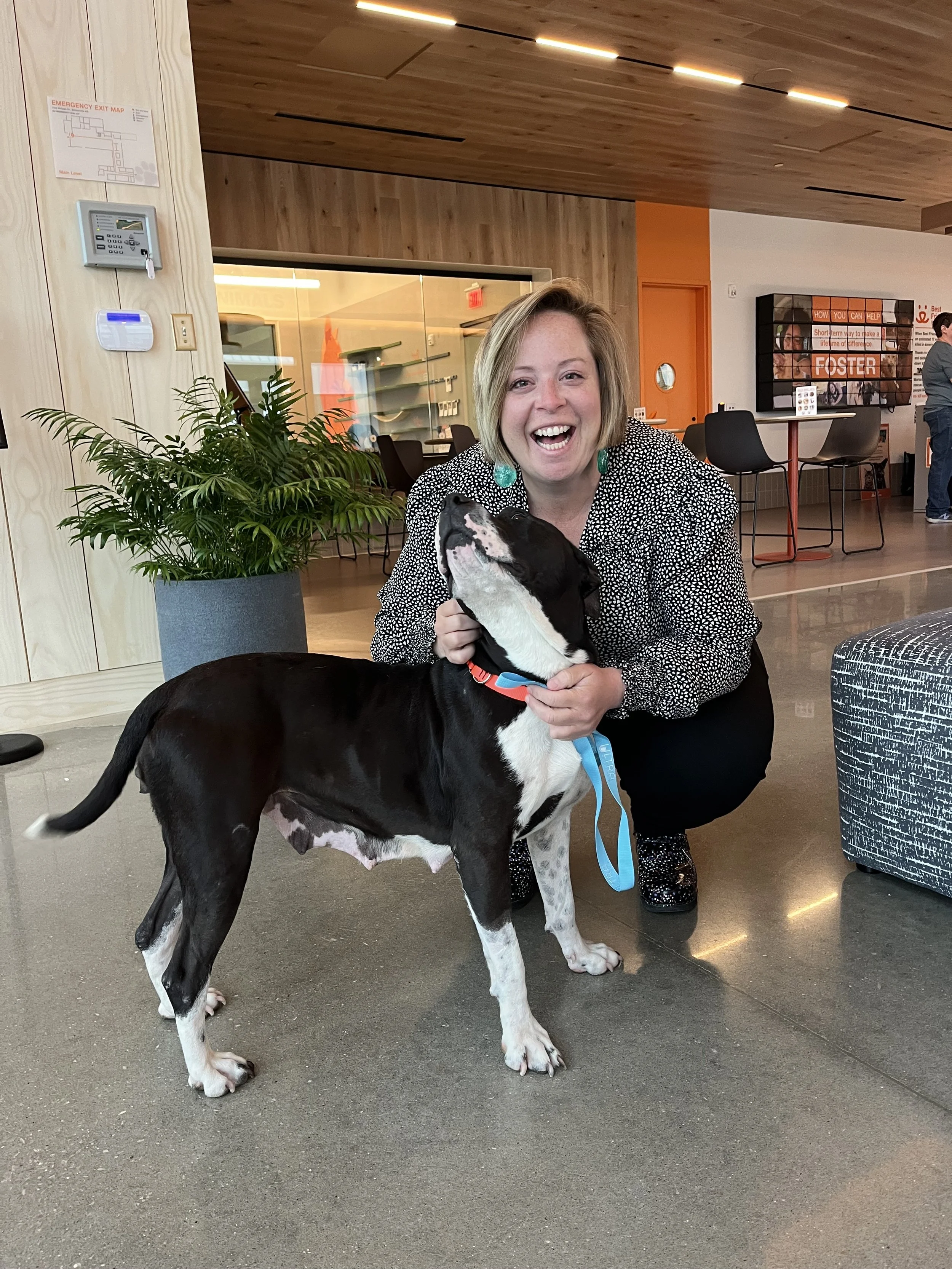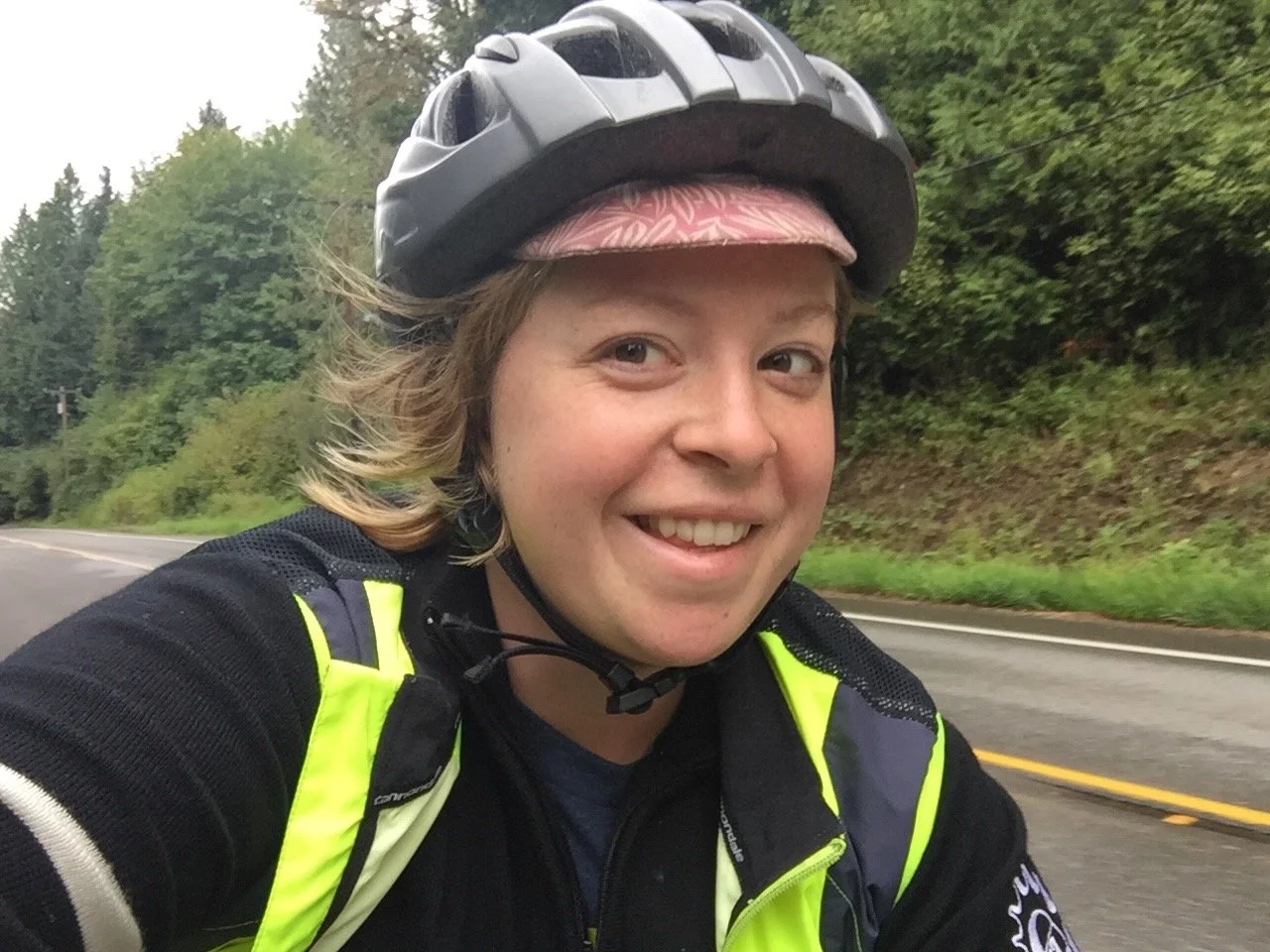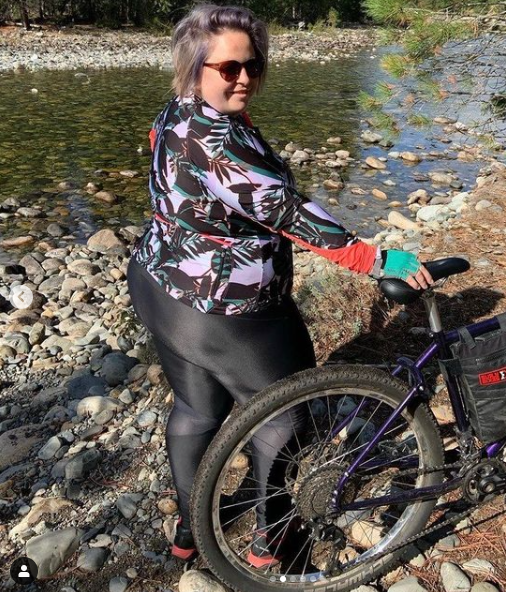Instead, I’m going to write about the breakout session I facilitated on Saturday morning, “Creating Size Inclusive Spaces & Communities (aka No Fatty Left Behind.”)
First, an acknowledgement. As a white cis-gendered woman, I have a position of privilege in the bike community (even though sometimes it feels like I don’t.) As a blogger with a decent sized audience, I have a responsibility to use this privilege to help break down the systems of oppression, including racism, transphobia, colonialism, ageism, sizeism, fatphobia, and a bunch of other isms to make the bike industry more welcoming and supportive to all. To that end, I will call out injustices when I see them and may end up calling out brands/friends/colleagues in this process. Hopefully we can all be in this together and get better together to make the entire industry more welcoming, positive, and supportive for all.
I was really really really nervous to suggest this as a topic for breakouts. I didn’t think it would be well-received or that people would come. For one, I was one of maybe 2 or 3 visibly fat people there. But after I announced the topic at dinner, I had upwards of ten people come up to me and thank me for bringing up the topic. And while in the end, the session wasn’t super well attended (which is totally cool because there were so many other important conversations happening at the same time), the discussion we did have was really freaking beautiful and inspiring and affirming.
The name and inspiration for my session was taken from a hiking group that I joined this spring, Fat Girls Hiking. Fat Girls Hiking is a body-positive community group that goes on group hikes that are welcome to all genders, all sizes, and all skill levels. They host a number of hikes across the US where people of all body sizes and shapes are encouraged to join, where nobody is too slow or too fat.
From my involvement with this group, I have seen the joy and inspiration that has come from being with a truly inclusive community that is size inclusive. I firmly believe that the biking community could learn a lot from these best practices, so my breakout session was an attempt to spread some of these ideas and to have a dialogue with other leaders in the biking community about how to do this.
As I’ve discussed before, there are some very real challenges to being a bigger person on a bike, including finding a bike, clothing choice, and finding people to ride with. One additional challenge is the fear of acceptance – will the people I want to ride with accept me? Will they drop me? Will I be able to keep up? Will I be the slowest person? On and on….
As ride leaders (or potential ride leaders), there is a lot we can do to help newer or less confident riders who may have larger bodies feel welcome at our rides, on our teams, and in our shops (or in our community spaces.) Actually, these tips go for everyone – we all have body insecurities and these tips will go a long way towards making everyone feel a lot more comfortable.
Setting Group Expectations
I like to think that these are general best practices for all groups, but at this point, nothing surprises me.
Set a pace for the ride and stick to it. If you say on your event that you’re going to be going 10-12 mph with regroups after hills, go 10-12 mph and actually regroup.
Have a sweeper at the back of the group. This rider should know where the group is going, have some mechanical skills and be a friendly person to encourage anybody who gets dropped to finish out the ride.
Consider having 2 pace groups for larger rides or those with varying speeds. Start/end at the same spot but perhaps the faster group does more hills.
Let the slowest person set the pace. Confirm they’re ok with this, but it can make for a fun change of pace.
Publicize the route ahead of time so folks can preview it and plan ahead for any hills or breaks if necessary.
It’s ok to ask participants to refrain from diet talk, body shaming, and weight loss talk
Swag, Team Kits & Industry Influence
If you are in charge of ordering team kits, make sure a large range of sizes are available. If you’re unsure what sizes are needed, ask people! Fat people know what size we need – it’s ok to ask us!
Order from and support brands that are size inclusive. Perhaps before ordering, ask a company if they carry plus-size apparel, even if you don’t need it. If they don’t, consider asking them why.
There was a ton of other great conversation and discussion that happened. Unfortunately, my brain is on overload and I forgot a bunch of it. I would love to hear your thoughts about any and all of this, and any suggestions you might have for how we can be a more supportive community.
Xoxo,
Marley
















